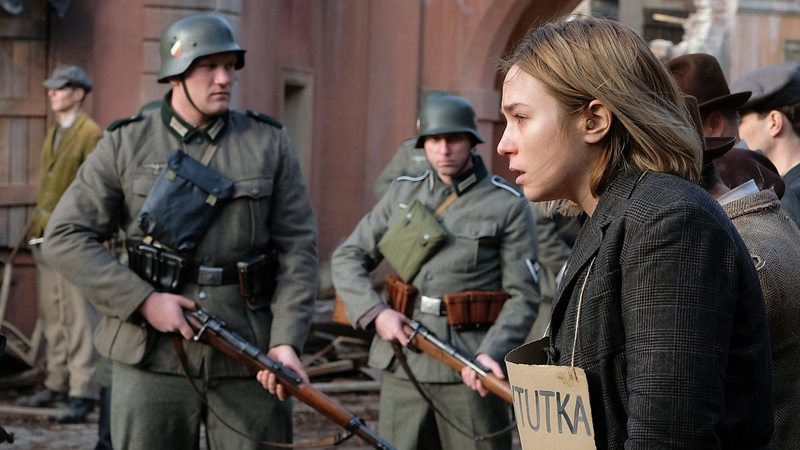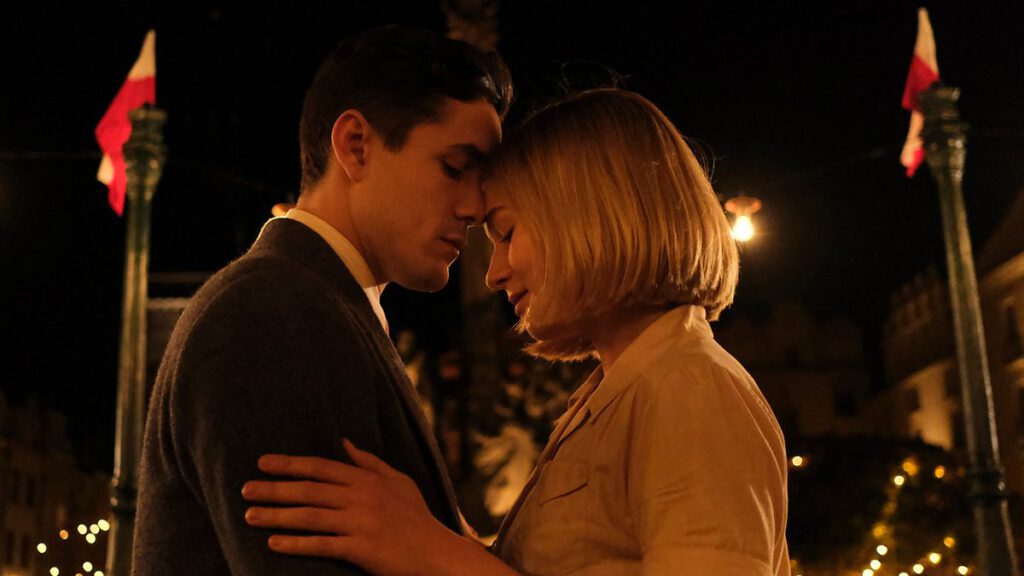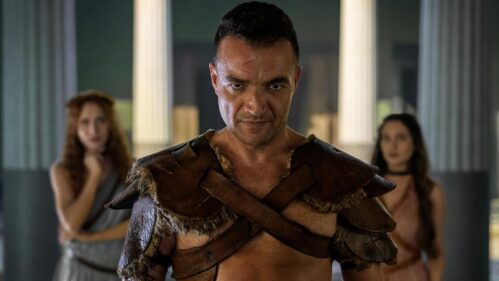It’s likely that one might read the title “World on Fire” in this particular moment in time and think, “nah, gonna steer clear of that one.” I can’t blame you. It hardly sounds like escapist fare, and it must be said that this war drama isn’t exactly comfort food or pleasant in a kind of familiar, mind-numbing way. If you want to just re-watch “The Office,” no judgments; if you think this is the perfect time to embrace the surreal, dopey madness of reality shows like Netflix’s “The Circle,” you’re probably right. But if what you want is to be engaged—to be sucked into a story completely, enveloped by another time and place—then the BBC’s epic World War II series might be just the ticket.
Premiering in the U.S on April 5 on PBS after bowing in the U.K. in September of last year (and already set for a second season), Peter Bowker’s “World On Fire” does one thing that seems especially appropriate right now: It focuses on the lives of people far from the podiums and big historical moments. Nor is its storytelling limited to one country or perspective. These seven episodes sprawl out from two characters, but they’re not the leads of a massive cast of supporting players. This is a true ensemble. So yes, we begin with Harry (Jonah Hauer-King) and Lois (Julia Brown), two young lovers boldly shouting down some British fascists, but within moments we’re introduced to Lois’s father Douglas (Sean Bean) and Harry’s mother Robina (Lesley Manville); a jump forward in time introduces us to the family that Harry, a translator, is staying with in Poland, including the soft-spoken but brave Kasia (Zofia Wichłacz) and her brothers. Harry’s neighbor is Nancy (Helen Hunt), an American radio journalist typically stationed in Berlin, who has a nephew (Brian J. Smith) working as a doctor in Paris; the list goes on (and on, and on).

If that seems like a lot, it is. And there’s quite a bit more, including Polish resistance fighters, a German couple trying to hide their daughter’s epilepsy from the doctors who would euthanize her, Nancy’s Nazi handler, some jazz musicians, many soldiers and sailors, and so on. While this makes some of the characters harder to latch onto than others—every storyline is intense, so when someone disappears for a spell, the mind does tend to wander—it’s to Bowker’s credit that all the characters are reasonably well-developed, and a fairly high number are consistently engaging and complex. The Nazis are an exception to this rule, but a welcome one—this isn’t a both-sides-now kind of story, and the only Nazis that aren’t unabashedly racist monsters are by and large devices of the plot, intended to remind us that wars are often fought by terrified teenagers.
War isn’t just the setting here, either. Bowker’s characters often reckon with the costs of war, but they also tend to struggle with their own ideas about it. This is especially true of Bean and Manville’s characters (both excellent, which will surprise precisely no one who’s even seen either of them act in anything). Douglas, a pacifist still struggling with shellshock years after his experiences in the Battle of the Somme, struggles to with the parameters of beliefs that had seemed absolute, particularly when his troubled son (Ewan Mitchell) joins up. His intellectual and emotional struggles are further spurred by Robina, who seems to relish an uncomfortable conversation and has her own complicated relationship with the cost of war, albeit one she keeps sealed behind the traditional stiff upper lip. There’s also an awkwardly charming pilot (“Doctor Who” alumnus Arthur Darvill, also a standout) who says he fights so that other people have the freedom to go on living however they choose, his blunt acknowledgment that his job is to kill people plays as a person trying desperately to acclimate themselves to a horrifying reality, and call it by its name.

That name is war, and it’s present even when it’s not. Directors Chanya Button, Adam Smith, Andy Wilson, and Thomas Napper all manage to convey the abruptness of danger; you’re safe until you’re not, you round a corner and death waits. Nor, with the exception of Dunkirk (not Christopher Nolan-level stuff, but still pretty affecting), does the series interest itself in the big historical events. This is a story of life during the war: The young officer learning how to lead as he and his men do nothing but retreat toward the sea in a series of increasingly distressing but tactically insignificant skirmishes; the singer who can spot the shellshocked men in her audience in seconds; the young waitress who, just when she thinks she’s reached her breaking point, finds even more places to shatter. People drink coffee and check the mail and run errands, but always, disaster looms.
Not every scene is a winner. Bowker exercises admirable restraint through much of the series, allowing the horror and tragedy to speak for itself, but when he does lean on the gas, it can break the spell a bit (a mid-season singalong is particularly irksome). But even when the storylines don’t weave together perfectly or the story gets a bit precious, “World on Fire” remains engaging, because the cast understands exactly what’s being asked of them and by and large refuse to oversell. In addition to Bean, Manville, and the late-arriving Darvill, Hunt is predictably excellent; sometimes her broadcasts feel a bit too much like convenient history lessons, but her performance is never less than wholly compelling. Brown and Wichłacz are similarly successful, and Brown and Manville are largely responsible for the show’s brief moments of levity, with Manville in particular expertly balancing the need for a solid punchline with the character’s use of acerbic humor as a defense mechanism. (“Scotland? As if going through Dunkirk wasn’t suffering enough.”)
It’s not light viewing. It also betrays no interest in the torn-flag-waving-boldly-in-the-rubble kind of patriotism often typical of war epics. “World on Fire” and Bowker wisely stay away from such things, and by eschewing the Churchills of the world in favor of the people just trying to get by, they create an ensemble war drama that never loses focus. No, it’s not going to take your mind off the world’s troubles. But it’s honest about the troubles of that era, and about how hard it can be to simply keep going when everything’s turned upside down.












